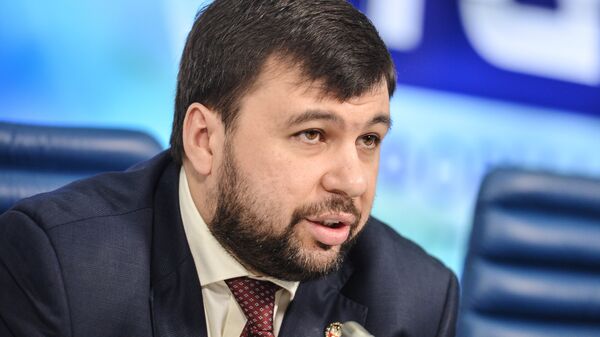"As it happened, the political subgroup meets for two days lately. This time it will also start a day earlier, on January 19, while the Contact Group’s three remaining subgroups will gather in Minsk on the 20th," Denis Pushilin told reporters.
Pushilin said progress in the upcoming talks hinged largely on whether Russian Presidential Aide Vladislav Surkov and US Assistant Secretary of State Victoria Nuland achieved results earlier this week.
Surkov met Nuland in the westernmost Russian exclave of Kaliningrad on Friday, describing the talks as "substantial, constructive and helpful…brainstorming on ways to find compromises."
The Trilateral Contact Group on Ukrainian reconciliation, which incorporates political, security, humanitarian and economic sub-groups, met earlier this week for the first time in 2016. Ukraine, Russia and the Organization for Security and Co-operation in Europe (OSCE) are represented at the Contact Group.
Russia’s newly appointed Contact Group envoy Boris Gryzlov called for a so-called silence regime in Ukraine's Donbas region starting from January 14. The idea was supported both by Kiev and Donbas militia.
In February 2015, Kiev authorities and Donbas militias signed a deal in the Belarusian capital to put an end to a military conflict in southeastern Ukraine, which started in April 2014.
Key points of the Minsk deal call for a ceasefire, weaponry withdrawal from the line of contact in eastern Ukraine, constitutional reforms, including a decentralization of power in the country, and granting special status to the Donbas region.
The sides failed to fulfill the agreements by end of 2015, as initially assumed.
Last month, the Russian, French and German leaders who have brokered the Minsk agreement last February agreed to extend its deadline into this year.


